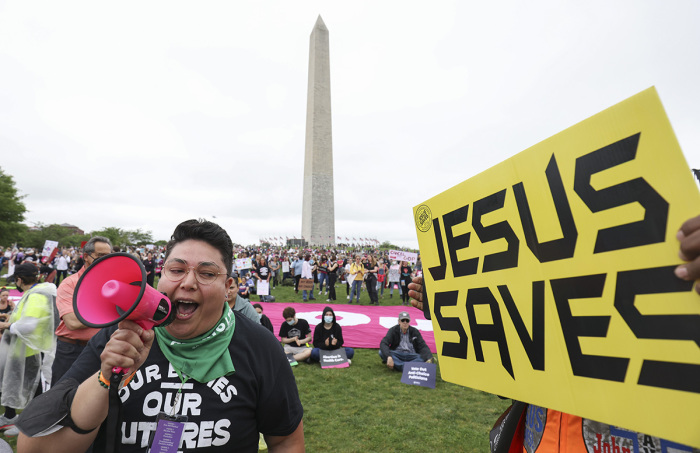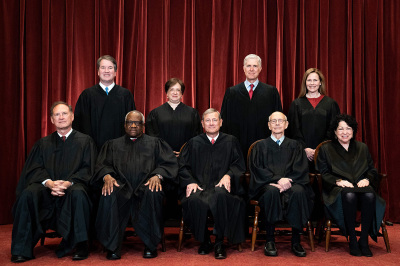Will the Supreme Court overturn Roe? Legal expert offers analysis

As abortion activists demonstrate in the "Bans Off Our Bodies" protests in Washington, D.C., and cities across the country Saturday, organized by Planned Parenthood and the Women’s March, many Americans want to know what will change if the justices overturn Roe v. Wade.
The protests in defense of Roe come after Politico obtained a leaked draft majority opinion in the Mississippi abortion case Dobbs v. Jackson Women’s Health, which Justice Samuel Alito authored in February. The case centers on a Mississippi law banning most abortions after 15 weeks into a pregnancy, which opponents say contradicts the Roe standard of viability and therefore must be struck down.
In its piece, Politico reported that the leaked opinion did not necessarily reflect the high court's final decision, as written opinions often undergo considerable change before being issued.
John Vile, a scholar and professor at Middle Tennessee State University, who serves as dean of the University Honors College, is an expert on the U.S. Constitution and the Supreme Court.
In an interview with The Christian Post, Vile explained that having Alito author the Dobbs opinion possibly indicates a preference by Chief Justice John Roberts.
“The general procedure for Supreme Court for the chief justice or the senior justice in the majority to author or assign a decision, with the chief often taking those in which it is thought that his opinion might have special weight,” said Vile.

“I believe that Thomas would be the individual in the majority with the longest tenure, but with recent questions surrounding his wife’s opinions, Alito might be considered less of a target.”
Vile noted that “Roberts is very concerned with the court as an institution” and felt that it was possible that “he could join in a concurring opinion, making this a 6-3 decision to discourage those who hope for an immediate repeal.”
“I think that Roberts and other justices will likely do their best — perhaps by offering to give or suspend their votes — to get Alito to assure those who fear that this opinion could erode the right to contraception … or the right to same-sex marriage,” Vile added.
Should the Alito opinion “or its central substance” remain intact, Vile noted, “it is likely to result in wider disparities between access to abortion in predominately red and predominately blue states.”
“For those who consider abortion to be a fundamental right, this will seem intolerable; for advocates of federalism, this will be little different from other variations in state laws,” he added.
If Roe is overturned, 21 states, including Texas and Ohio, would immediately ban abortion in most circumstances or restrict abortions to the first six weeks of pregnancy. This includes 13 states with so-called trigger laws or bans passed after the Roe decision was released, which will take effect if it's overturned. Other states have pre-Roe abortion bans on the books that were never officially repealed.
Meanwhile, 16 states, including California and New York, have passed laws codifying the right to an abortion, with some measures effectively allowing the procedure up until birth. Ten states will continue to enforce existing abortion limits, while voters in three states might have the opportunity to select their preferred abortion policies in ballot initiatives later this year.
Herbie Newell serves as president of Lifeline Children’s Services, the largest Evangelical Christian adoption agency in the United States. In an op-ed piece published by CP last week, he asserted that if people “want to end abortion, the Supreme Court battle’s conclusion is just the beginning.”
“Christians will need to mobilize at the state level, the church level, and in their own lives in order to care for the vulnerable,” Newell wrote.
“Pray that you would follow His voice and what He is leading you to do on behalf of the least of these. Vote for representatives who will do the work necessary to protect and support life, both of the mother and of the child. Organize to support those who have been called to participate in the legal element of the fight for life.”





























